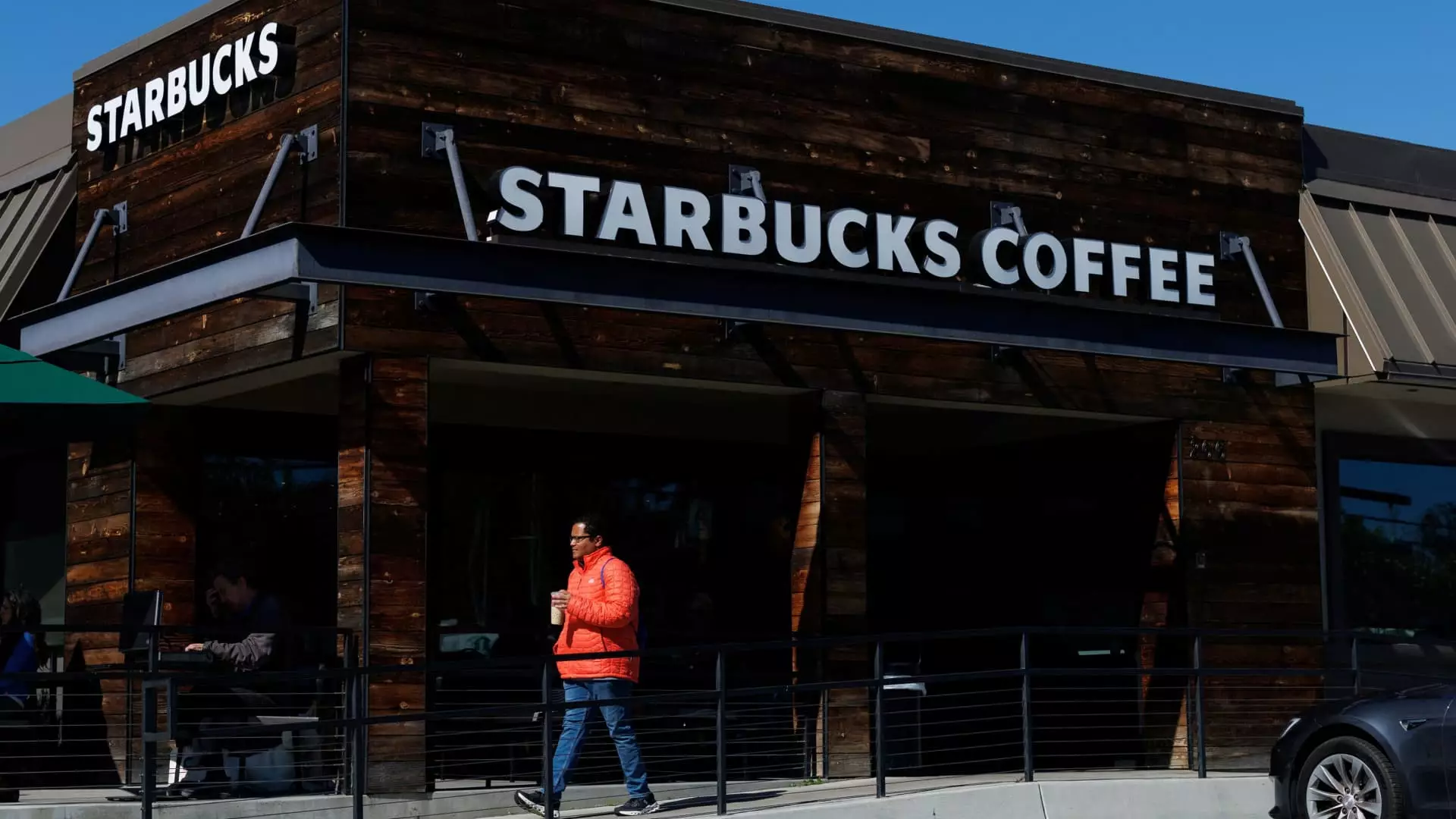In recent days, a cloud of uncertainty has engulfed the restaurant industry, sending stock prices tumbling across the board. The ingredients for this downturn? A cocktail of investor pessimism regarding a looming recession and recent trade policies initiated by President Donald Trump. While most analysts are inclined to suggest that the direct impact of these tariffs on restaurant chains may not be immediately dire, the rippling effects on consumer spending could spell doom for an already fragile sector. This growing apprehension is tangible; stock values have been on a downward spiral for three consecutive days, raising alarm bells among entrepreneurs and investors alike.
Tariffs as the Catalyst for Consumer Frugality
One of the most concerning aspects of the current climate is the impact of newly imposed tariffs on various goods. While analysts like Dennis Geiger of UBS deem the tariff-induced cost impact on restaurants manageable, they highlight the real threat lies in the diminished consumer spending power. As prices rise, fueled by increased costs for commodities—coffee being a prime example—diners may be forced to turn to budget-friendly dining options, severely impacting the restaurant landscape. The tariffs targeting nations such as Vietnam and Brazil, which are critical to coffee supplies, have specifically ignited fears that the increased cost of beloved beverages could discourage customers from splurging at coffee chains like Starbucks.
Starbucks – A Case Study in Tumbling Confidence
The once mighty Starbucks has become emblematic of the broader malaise afflicting the industry. With a significant drop in stock prices tied directly to fears about high coffee costs, anti-American sentiment, and the risk of economic downturns, the chain is feeling the heat. Downgrades from analysts, like the one by Baird, carry more weight than just numbers on a spreadsheet. They serve as bellwethers—which signal to investors that the future is clouded with uncertainty. In a world where consumer loyalty is often dictated by price sensitivity, Starbucks’ ambitious attempts to salvage its U.S. business may be undermined by the very tariffs it could once shrug off.
Casual Dining Chains Feel the Squeeze
The fallout extends to casual dining chains as well. Companies like Dine Brands, which manages household names such as Applebee’s and IHOP, have seen their stocks tumble under the economic pressure. The collapse of investor confidence in these dining establishments serves as a harsh reminder of the unpredictable nature of consumer behavior, especially in recessionary periods. This sector, characterized by mid-price offerings, is perilously vulnerable; diners may shift their preferences toward fast-casual or quick-service options as they seek budget-friendly alternatives. This shift doesn’t just threaten individual chains; it puts immense pressure on the entire casual dining sphere, potentially leading to an industry-wide reckoning.
Fast-Food Chains: Resilience Tested
Historically viewed as the go-to savior during economic downturns, fast-food chains are not immune to the prevailing anxieties. Companies like McDonald’s and Taco Bell have long benefited from consumers’ transition to cheaper meals in hardship periods; however, the recent downturn in consumer spending has raised eyebrows. Observations reveal that even low-income customers, once steady patrons of fast-food restaurants, have begun to cut back on visits and orders. As those who typically indulge in less expensive dining shrink their spending, fast-food establishments must confront the pressing issue of adapting to a new economic reality, where even their safety nets are fraying fast.
Can Any Restaurant Stocks Thrive? A Dismal Outlook
Amidst the chaos, it’s worth noting that few restaurant stocks are currently thriving. One potential beacon in this storm is Dutch Bros., which even managed to rise in stock value recently despite industry-wide malaise. Companies like Cava have also bucked the trend with noticeable gains. However, these exceptions only underscore the broader instability facing the restaurant industry. As inflation looms and trade tensions persist, the specter of recession is palpable, casting a long shadow over any recovery prospects.
In a sector heavily dependent on consumer sentiment, the current trajectory of restaurant stocks suggests an urgent need for strategic adaptations. If companies want to survive this economic storm, they must innovate and offer compelling reasons for diners to return, even as wallets tighten across the American landscape. With an era of frugality looming large, it’s clear that the restaurant industry is on the precipice, and only the adaptable will endure.

